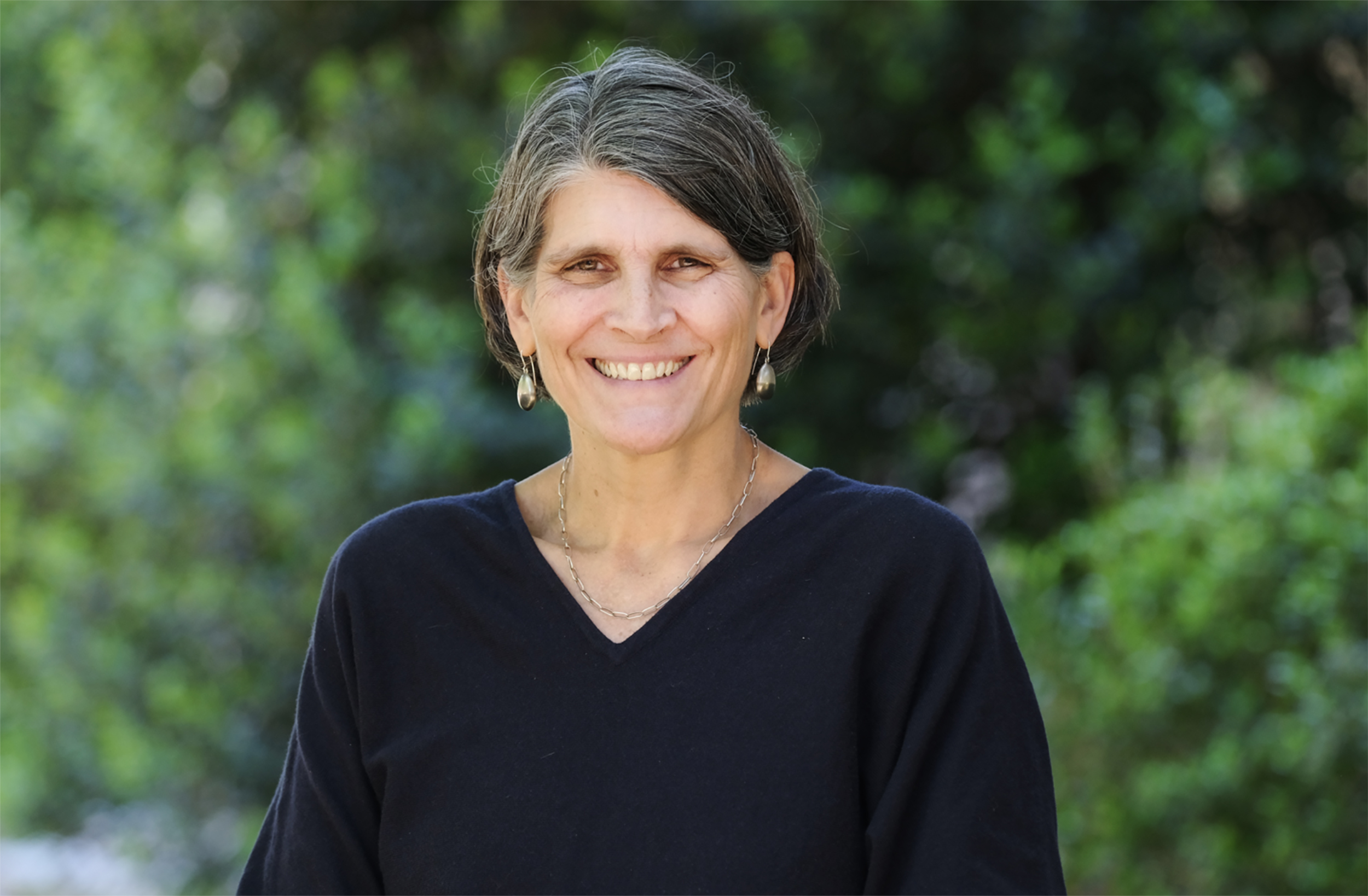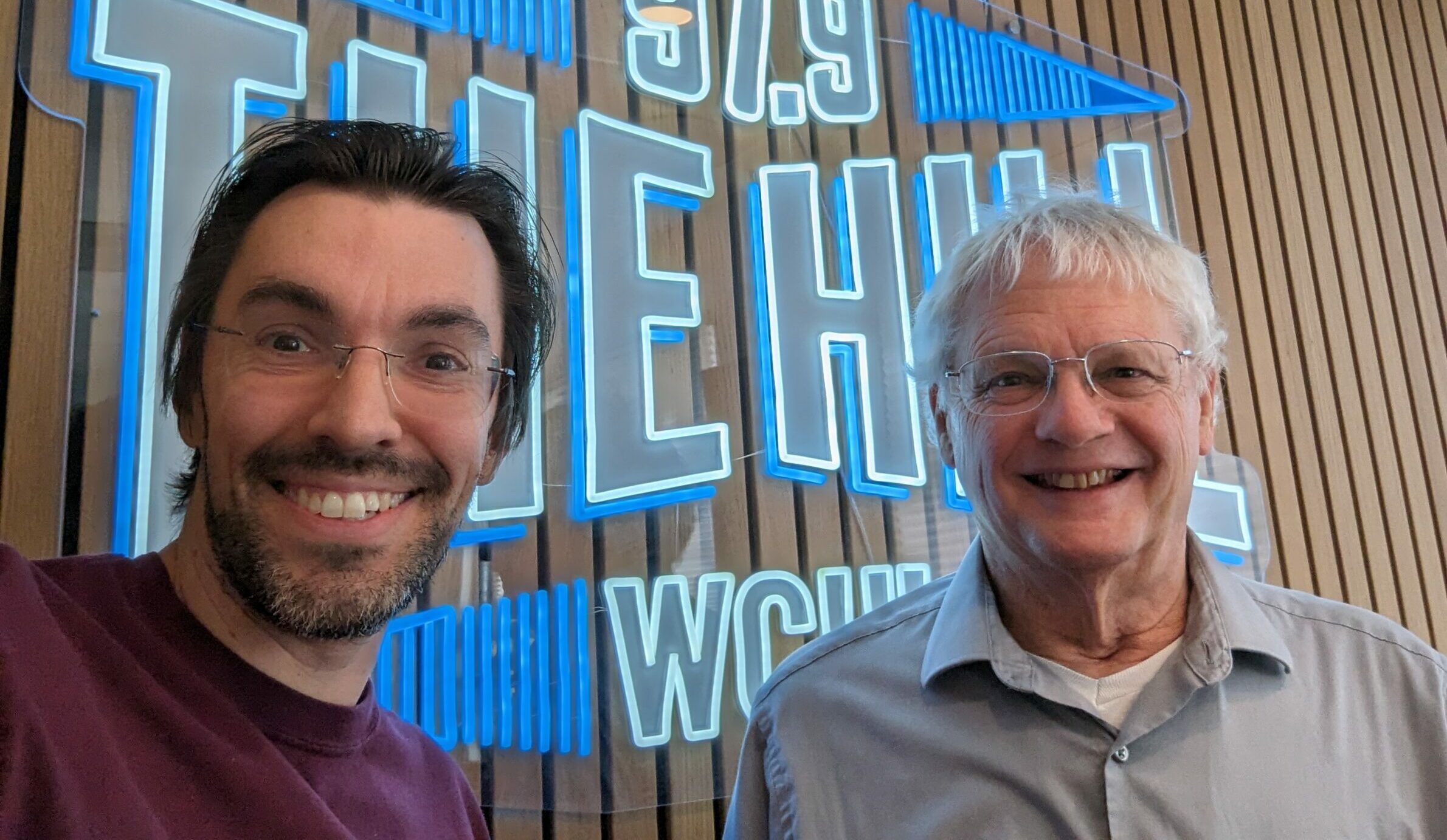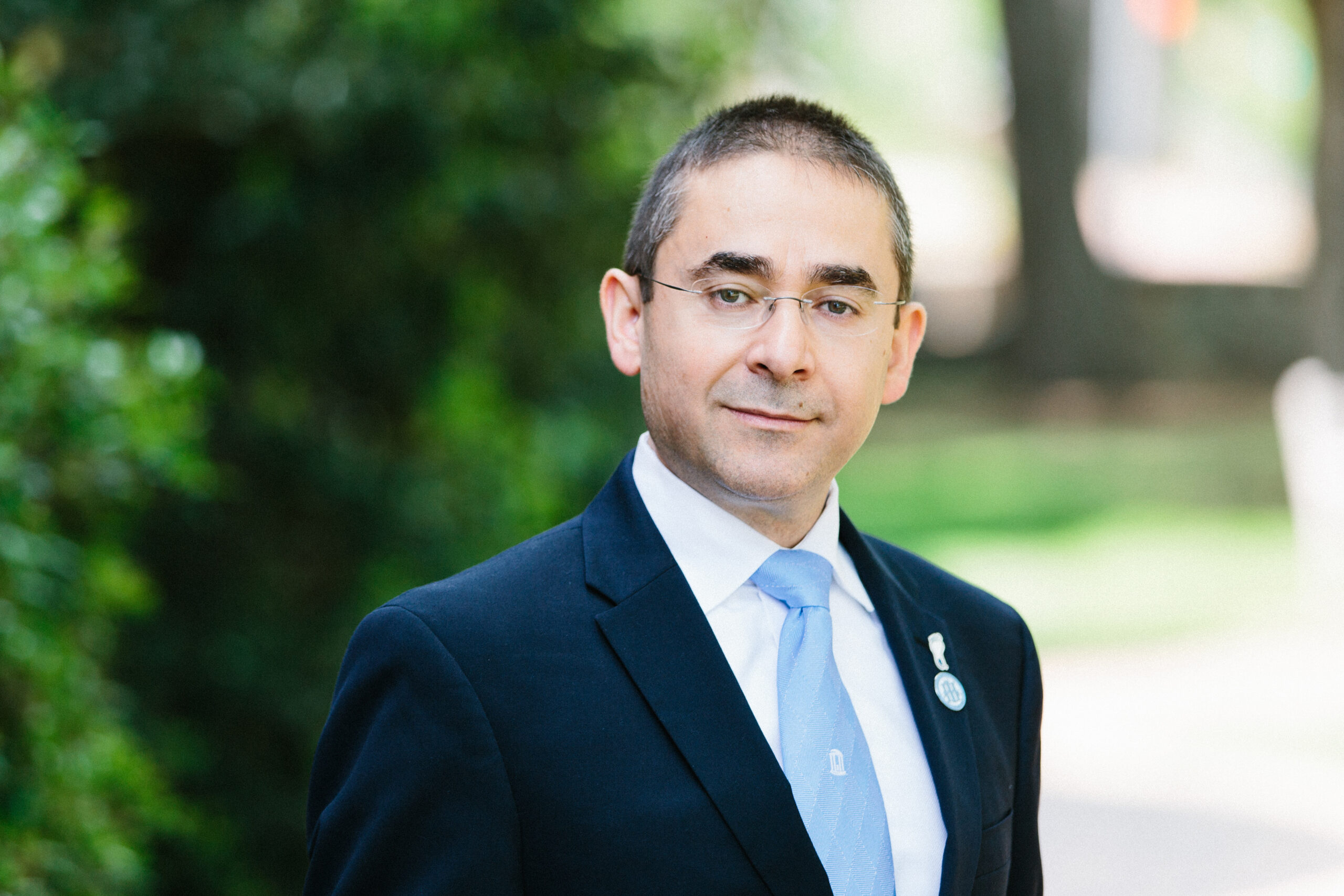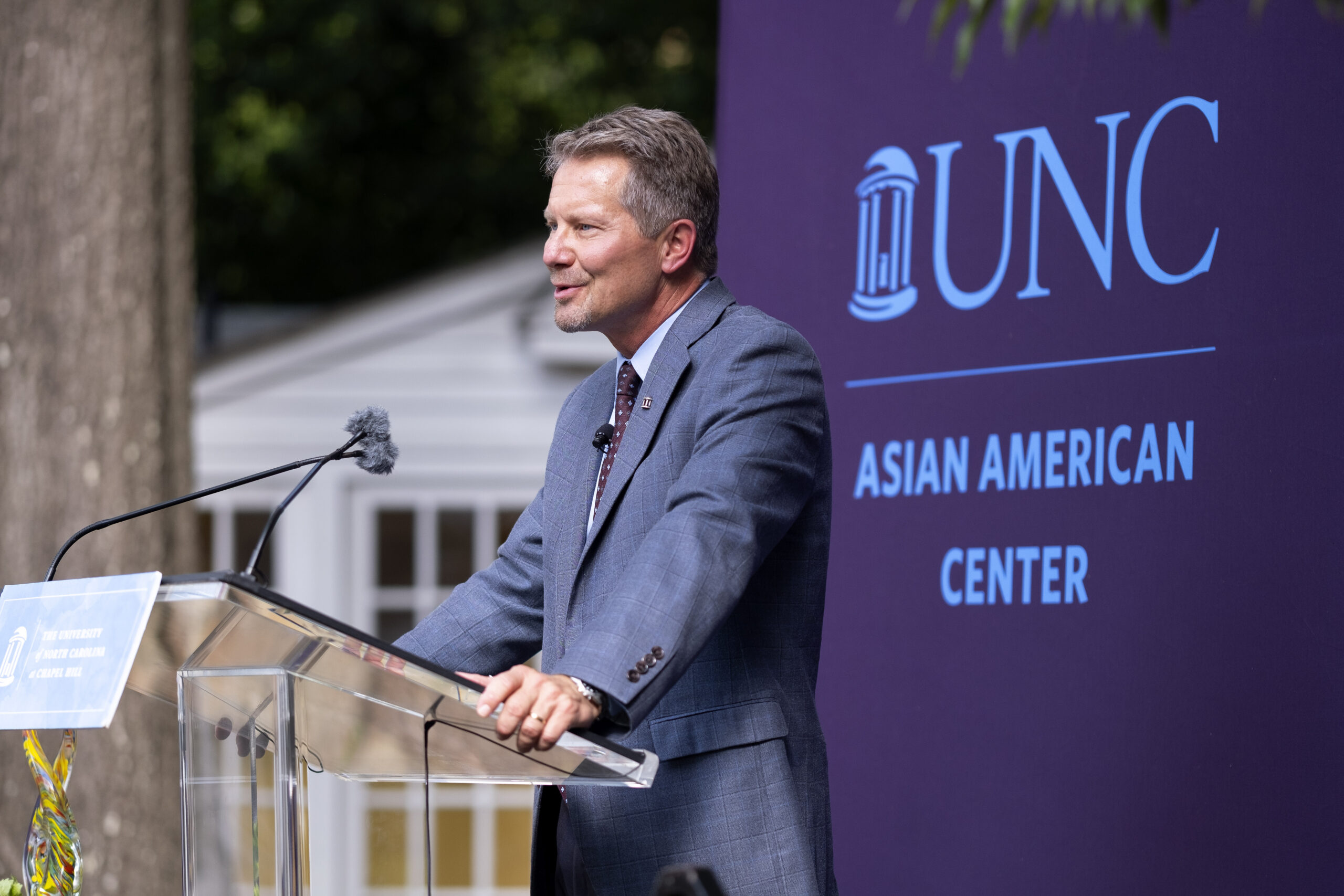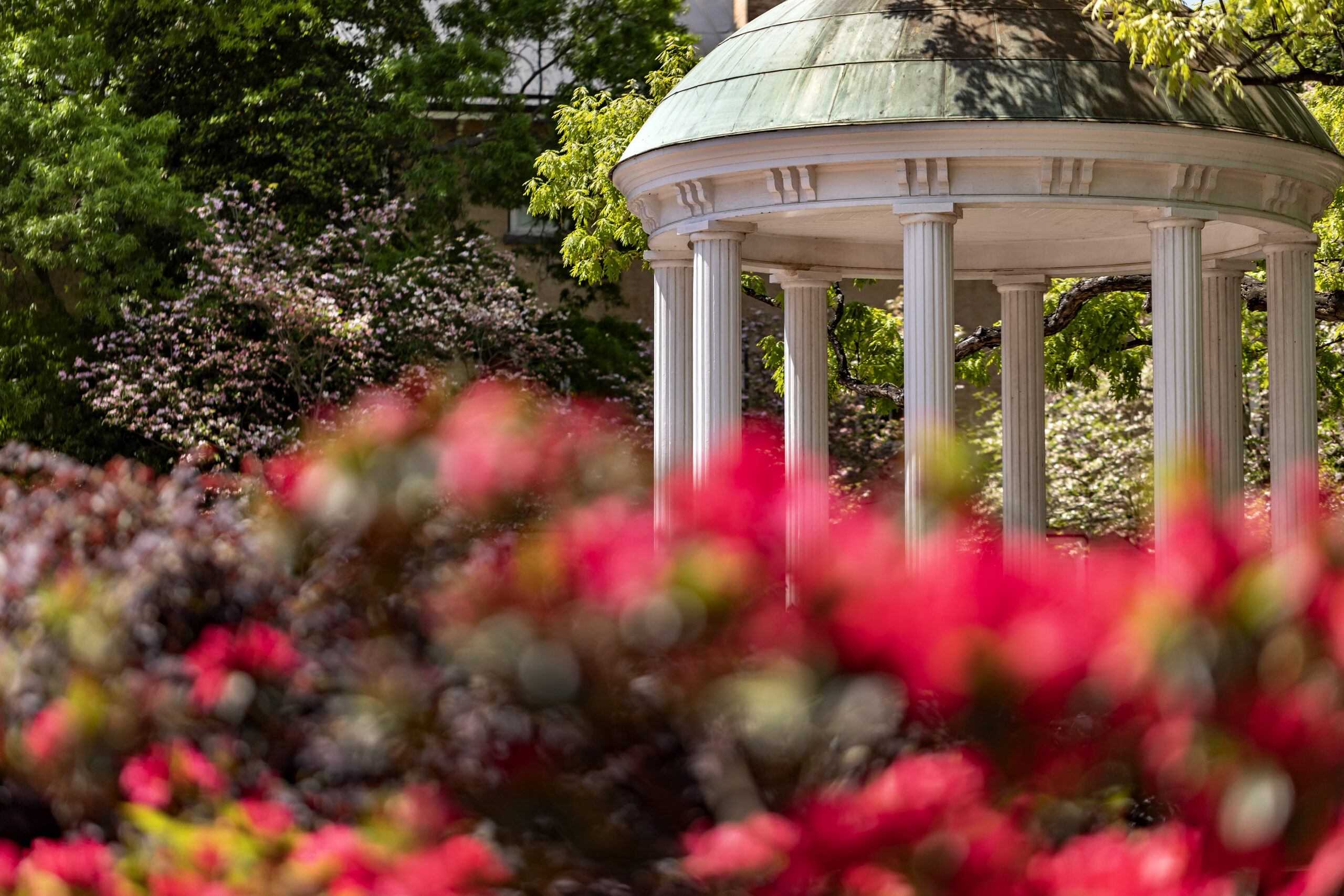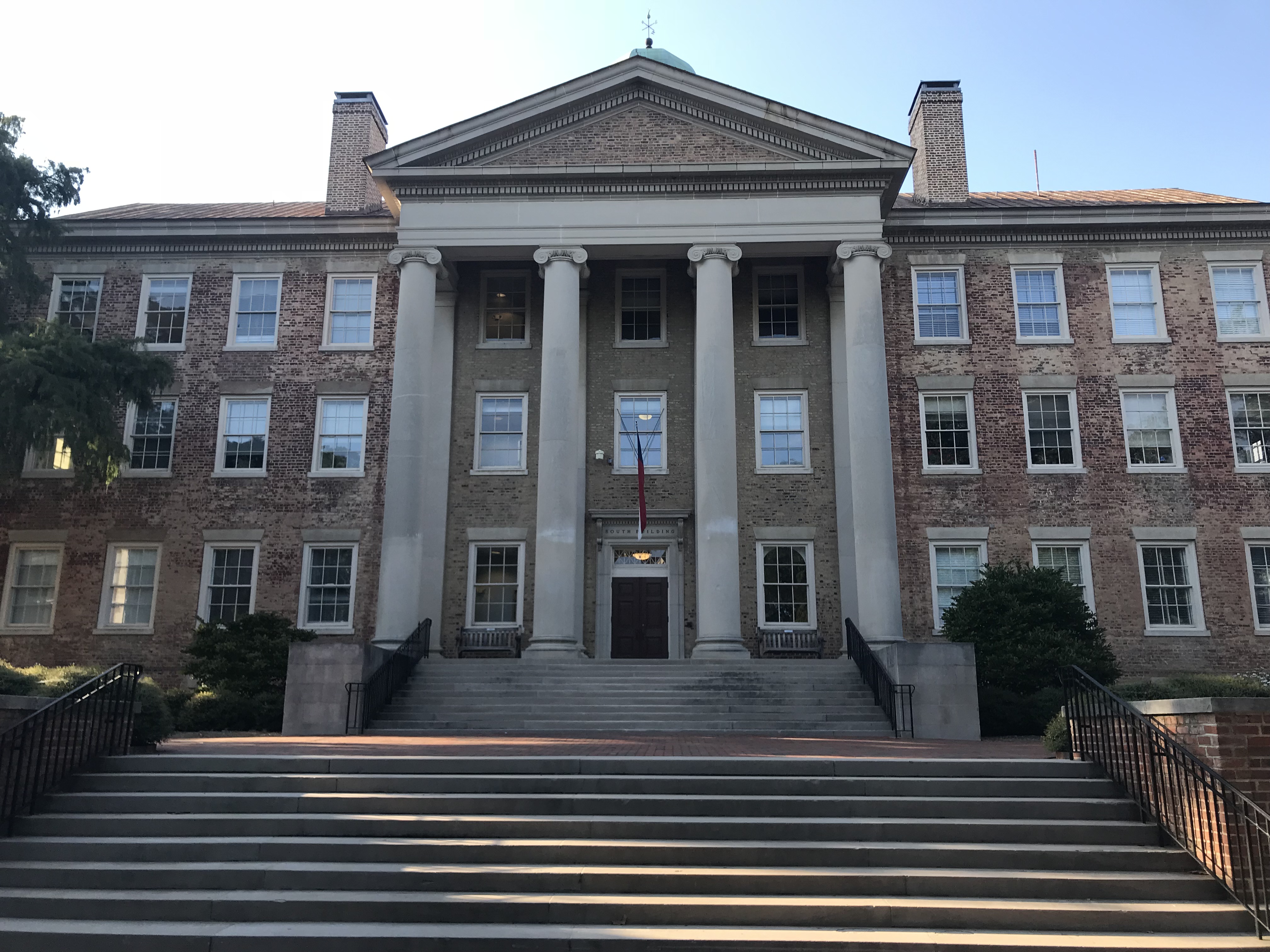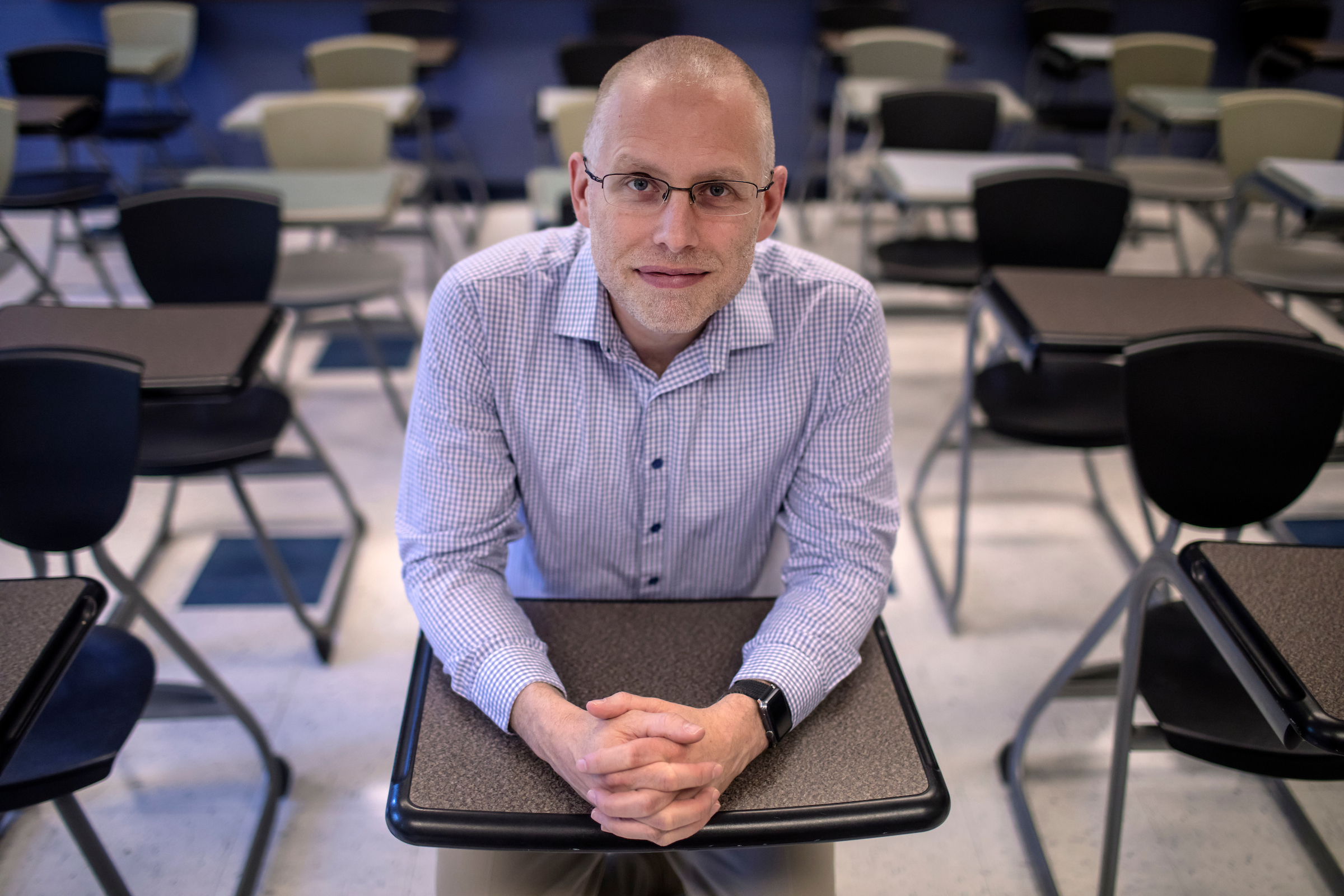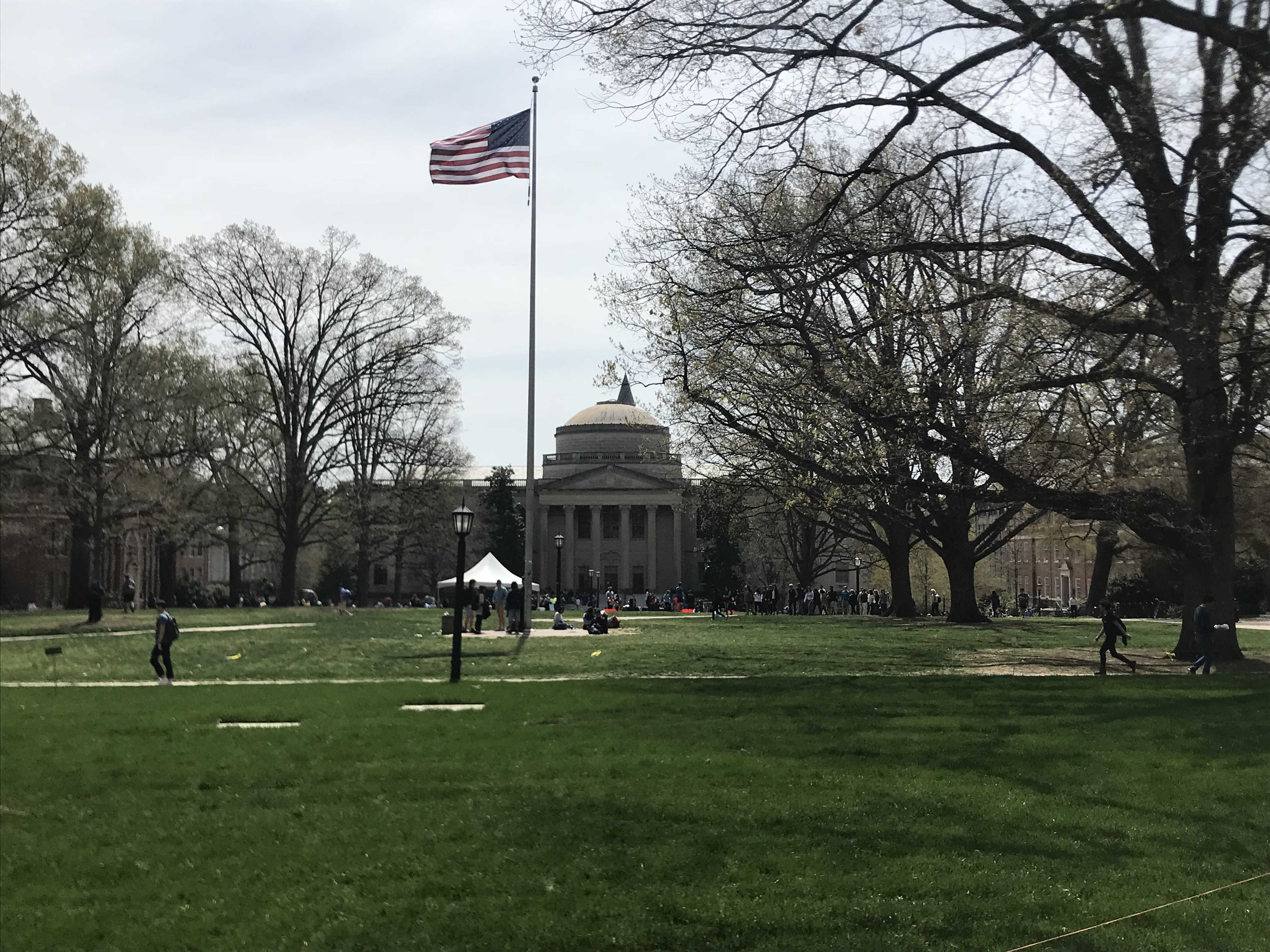The future of higher education: it’s a major issue for policy makers at the state and federal level – and universities are planning for their own futures too, at a time of great uncertainty and significant transition.
What should tomorrow’s colleges and universities look like? How should we be devoting our resources? What should our priorities be? What should be changed, and what should remain the same?
WCHL’s Will Arrington is looking into the future of higher education this year, with perspectives from all sides of the political spectrum. In the eighth part of an ongoing series, he sits down with UNC’s dean of education – who says he’s worried about a long-term decline in public funding, but optimistic that there are ways to make college more accessible for more people.
Listen to Part 1 of the report.
Listening to the talk about higher education reform, you might get the impression it’s regressing back into being an institution for only the wealthy and privileged. And UNC Dean of Education Fouad Abd-El-Khalick argues that politicians aren’t doing enough to fix the problems at the local level.
“We keep talking about the costs of higher education, [but] there’s been an incredible movement of states not wanting to pay for the costs,” he says. “In the 1980s, universities were getting 40-45 cents on the dollar, but [today] they’re surviving on 11-12 cents on the dollar from the state.”
This is a huge problem, Abd-El-Khalick says, because the need for higher education is only going to increase in the coming years. “We’re almost moving to a place where the BA and BS degree is the new high school,” he says. “It’s really hard to do much with a high school degree.”
Abd-El-Khalick is optimistic. “I really do believe that we can reach a place where we can afford higher education for everybody,” he says. But he’s not sure how that model will be achieved.
Abd-El-Khalick says he’s wary of the idea of catchall solutions – from right and left alike – to such a complex issue. Some conservatives say we can reduce the cost of college by eliminating teacher tenure, for instance, but Abd-El-Khalic rejects that idea – not least because the academic freedom it provides is part of what makes American universities productive.
And he says he’s equally skeptical of free-tuition proposals. “Debt free college, or free college, or college that is fully funded by parents – these aren’t solutions,” he says. “These are caricatures of solutions. I do think there has to be some skin in the game…
“But the lack of state support and the [decreasing] funding from the federal government is putting a lot of stress on families.”
No matter what shape it takes, Abd-El-Khalick does say that higher education reform should be a top priority – because education is America’s last remaining clear advantage in the global economy.
“Look at any dimension you can think of,” he says, “the one area in which we’re still way ahead of the curve is knowledge production and innovation. It just baffles me that we want to continue to starve the higher education institutions.”
Listen to Part 2 of the report.
But at the same time, Abd-El-Khalick says the situation isn’t as dire as some make it out to be.
“(The system) is working,” he says. “You can always find a few examples of folks who’ve never been to college and are incredibly successful. That speaks to human ingenuity, to grit and persistence to opportunity. And you can always find examples of people who went to college and couldn’t find a job. The anecdotes are always there…
“But the larger trends indicate that [college graduates] earn over a million dollars more over their lifetime than someone with a high school diploma.”
So what reforms would he support?
Dean Abd-El-Khalick says people need to understand that most universities can’t sustain themselves without external funding – and that states need to intervene more heavily.
“On their own, [colleges] couldn’t be sustainable because universities are public goods,” he says. “They work really well when they disappear into the background. Education is both a right and a public good, and by that definition, they aren’t self-sustainable.”
He also says universities are already taking steps to drive down costs. “Are we meeting everybody’s needs? Far from it. But by the same token, there is a lot that goes on,” he says. “Can we create a system that can meet everybody’s need sometime down the line? Yes, but it has to be differentiated.”
Another simple fix, he says, is to recognize what colleges really are: “engines” to empower future generations to solve problems. Abd-El-Khalick says people might be more likely to propose solutions if that were the focus of the discussion – as is already the case, he says, in the push to modernize the classroom.
“One thing that’s been going on is innovation and pedagogy,” he says. “The old model with 600 kids sitting in their seats being recipients of a lecture is something of the past. There’s been a huge effort to transform the pedagogical and learning experience…
“We want education that’s collaborative, that’s cutting edge, that speaks to preparations for jobs.”
Dean Abd-El-Khalick does acknowledge that, despite its long-term value, college is a huge financial burden, not open to everyone who deserves it. “I do understand the frustration of families of students who you know are bright and qualified and deserving, but cannot afford to come to college,” he says. “I wish I had the formula for how to make this work…
“But it’s hard to move from the system we have now to one where it’s free for everyone, or where it has to be paid for [entirely] by students. Its not going to be sustainable either way.”
Overall though, Dean Abd-El-Khalick says he feels higher education is still a worthwhile endeavor, and that we should make it a top priority in this country to provide it to as many people as possible.
Read Part 1 of Chapelboro’s series on higher education.
Read Part 2 of Chapelboro’s series on higher education.
Read Part 3 of Chapelboro’s series on higher education.
Read Part 4 of Chapelboro’s series on higher education.
Read Part 5 of Chapelboro’s series on higher education.

